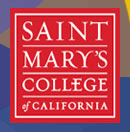Abstract
What connects Catholic Social Tradition with Sociology? How do each inform the other and how do they, together, flow through and animate the sociologist? Within a student-driven learning community pedagogy, this course builds on the humanistic aspects of Sociology as a scientific perspective a la Peter Berger’s Invitation to Sociology. This foundation is then filtered through a social psychological understanding of self with a sense of vocation through which persons’ deepest passions meets humans’ greatest needs. Biographical vignettes of sociologists’ careers of study that address issues of racial and gender inequalities and psycho-social shifts in values over the life course exemplify linkage of social science and social justice. These portrayals of scientist-activists’ dedication to describing and explaining inequalities are complimented by case studies of sociologically-informed community activists struggling to change unjust structures and empower disadvantaged communities through initiatives that embody efforts to “live the Catholic Social Tradition.” Themes of humanistic social science, self and vocation, committed social scientists, and empowering community organizers for a more just society are then woven into an overview of Catholic Social Tradition around issues of globalization, spirituality, and justice. Finally, the course moves toward the universal issues developed within the larger Catholic social tradition—namely, common good, universal solidarity, personal dignity, and institutional subsidiarity—in an attempt to include other religious traditions and motivate all persons committed to a more just and peaceful social order.
Erratum
A new version adhering to APA guidelines replaced the original version on 12/01/2015.
Recommended Citation
Myers, Daniel J. and Weigert, Andrew J.
(2015)
"Interfacing Catholic Social Meanings, Sociology, Self, and Pedagogical Practices,"
Engaging Pedagogies in Catholic Higher Education (EPiCHE):
Vol. 1:
Iss.
1, Article 3.
DOI: https://doi.org/10.18263/2379-920X.1006
Available at:
https://digitalcommons.stmarys-ca.edu/epiche/vol1/iss1/3
Included in
Adult and Continuing Education and Teaching Commons, Civic and Community Engagement Commons, Community-Based Learning Commons, Community-Based Research Commons, Curriculum and Social Inquiry Commons, Educational Administration and Supervision Commons, Educational Assessment, Evaluation, and Research Commons, Educational Leadership Commons, Educational Methods Commons, Higher Education Commons, Higher Education and Teaching Commons, Leadership Studies Commons, Liberal Studies Commons, Service Learning Commons, Social and Philosophical Foundations of Education Commons, Student Counseling and Personnel Services Commons

